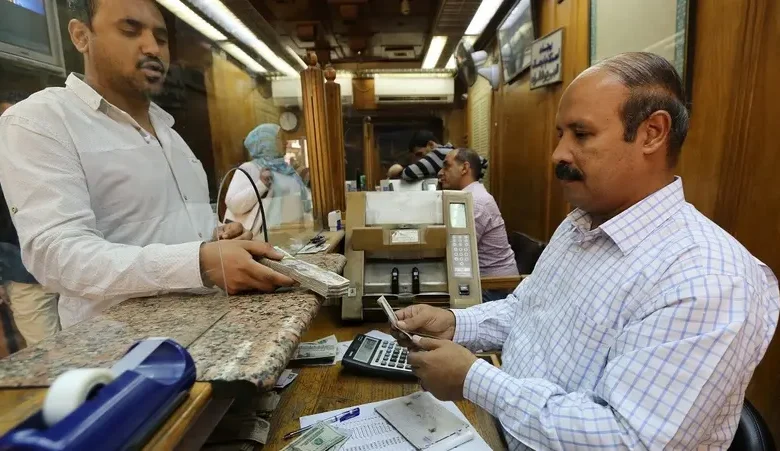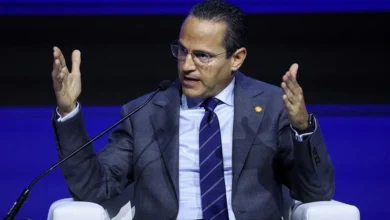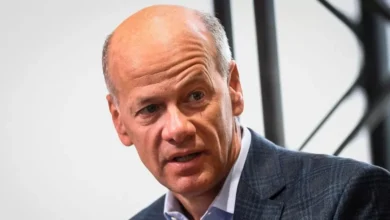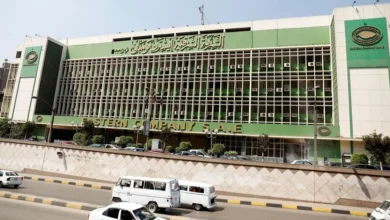A rollercoaster tale in Egypt: Soaring rates, currency floatation, and IMF boost

The financial landscape in Egypt on Wednesday was nothing short of dramatic. Amidst a backdrop of anticipation and speculation, the Egyptian economy experienced pivotal changes that underscored the unfolding narrative of reform and adjustment.
Devaluation of Egyptian pound
In recent developments, the Central Bank of Egypt (CBE) implemented an exchange rate flexibility which lead to the pound experiencing a significant shift against the dollar in the official market, breaking the level of 50 pounds per dollar, as per sources familiar with the currency fluctuation.
Exchange Rate Liberalization is when the currency is regulated by market forces (demand and supply). In Egypt’s case, it is considered an attempt to alleviate an already ailing economy.
This change was observed across various banks including Abu Dhabi Islamic Bank, HSBC, Kuwait National Bank, Commercial International Bank, Faisal Islamic Bank, Bank Misr, and Arab International Bank, with exchange rates fluctuating between 50-50.45 pounds per dollar. Mid Bank recorded the dollar at 49.8 pounds.
This is considered the fourth devaluation of the Egyptian pound since early 2022.
Interest rates surge
Before the Exchange Rate Liberalization process (floatation of currency), The Central Bank of Egypt announced a substantial increase in interest rates by 600 basis points, or 6 percent, bringing the rate to 27.25 percent.
This decision aims to tighten monetary conditions in alignment with the targeted path to curb inflation rates. The Central Bank reaffirmed its commitment to maintaining price stability in the medium term and continues its efforts towards adopting a flexible inflation targeting framework. This involves targeting inflation as a nominal anchor for monetary policy while allowing the exchange rate to be determined by market mechanisms. Achieving a unified exchange rate is deemed crucial for eliminating the demand buildup for foreign currency following the disparity between official and parallel market rates.
Full floatation
Mohamed El Etreby, head of the Federation of Egyptian Banks and chairman of Banque Misr, clarified in an interview with Al Arabiya Business that Wednesday’s rise in the dollar’s rate against the pound is not a “managed” floatation but a full floatation. He anticipated the disappearance of the black exchange market in Egypt following the Central Bank’s significant interest rate hike aimed at curbing inflation, expecting an increase in the pound’s exchange rate soon.
IMF agreement expansion
The Egyptian prime minister also announced on Wednesday that the International Monetary Fund (IMF) would increase its current lending program to Egypt to $8 billion, coinciding with the Central Bank’s decision to let the pound devalue and to promote free currency trading. This expansion builds upon the $3 billion Extended Fund Facility agreed upon with the IMF in December 2022, which was aimed at transitioning towards a more flexible exchange rate system.
Prime Minister Mostafa Madbouly stated that under the new agreement, Egypt will also receive an additional loan of approximately $1.2 billion from the fund’s Environmental Sustainability Fund.
Madbouly added that Cairo aims to ensure that public investment does not exceed one trillion Egyptian pounds ($20.2 billion) in the fiscal year 2024-2025.
This agreement comes less than two weeks after PM Madbouly revealed that Egypt will receive $35 billion in direct foreign investment over the next two months through the Ras al-Hikma project deal for a development project on Egypt’s northern coast.
The IMF’s agreement signed in 2022 included a structural reform program to achieve equal opportunities between the public and private sectors and specific provisions for tightening monetary policy, financial stabilization, and enhancing the social safety net.
Expectations and adjustments
Analysts and economic experts predict various outcomes from these adjustments, including potential further measures to enhance Egypt’s economic outlook, such as increased foreign financial inflows from the Ras al-Hikma deal with the UAE. The Central Bank’s proactive steps, coupled with interest rate increases, are seen as bold moves to address inflation and stabilize the Egyptian pound, with expectations for the currency to stabilize around 50 pounds per dollar.
Hany Genena, chief economist and market strategy analyst at Cairo Capital Securities, told Al Arabiya Business that the Central Bank of Egypt raised interest rates higher than expected to control inflation. Genena expects the Egyptian pound to stabilize around 50 against the dollar.
Proactive step
In this regard, Alia Moubayed, chief economist at Jefferies International, stated that 60 percent of the forecasts had indicated the liberalization of the pound before Ramadan, and 40 percent had anticipated the decision after Ramadan.
She explained that this proactive step, along with the interest rate hike, complements the fundamental changes that the Ras al-Hikma deal would bring about by increasing foreign financial flows.
Moubayed told Al Arabiya Business that there are expectations of further measures that could improve the future outlook, including a preliminary agreement with the IMF.










